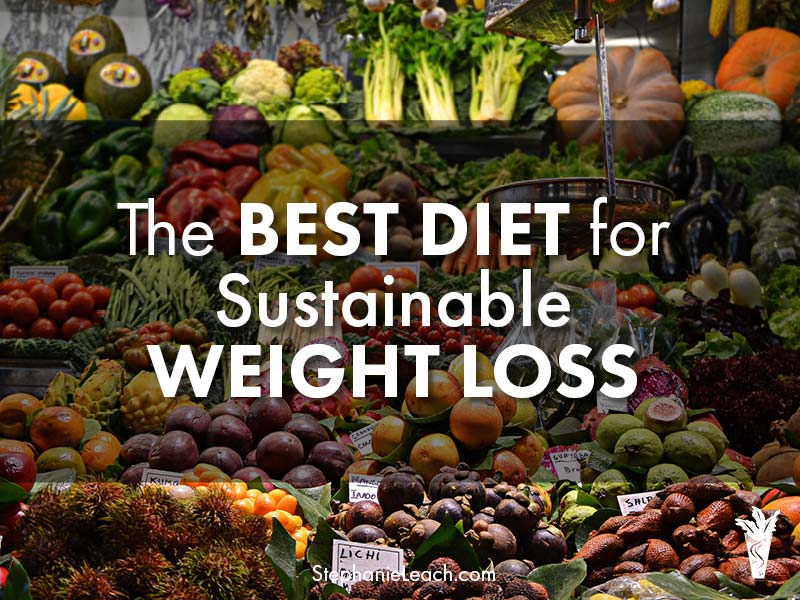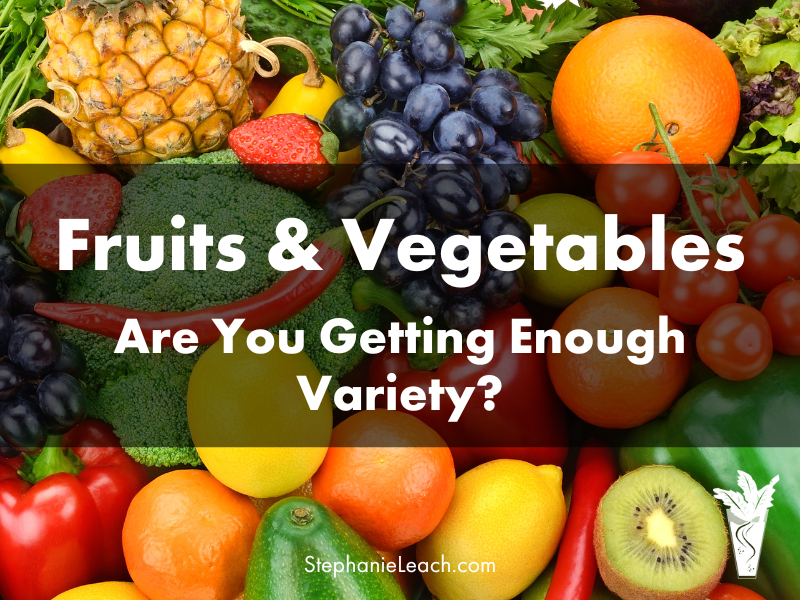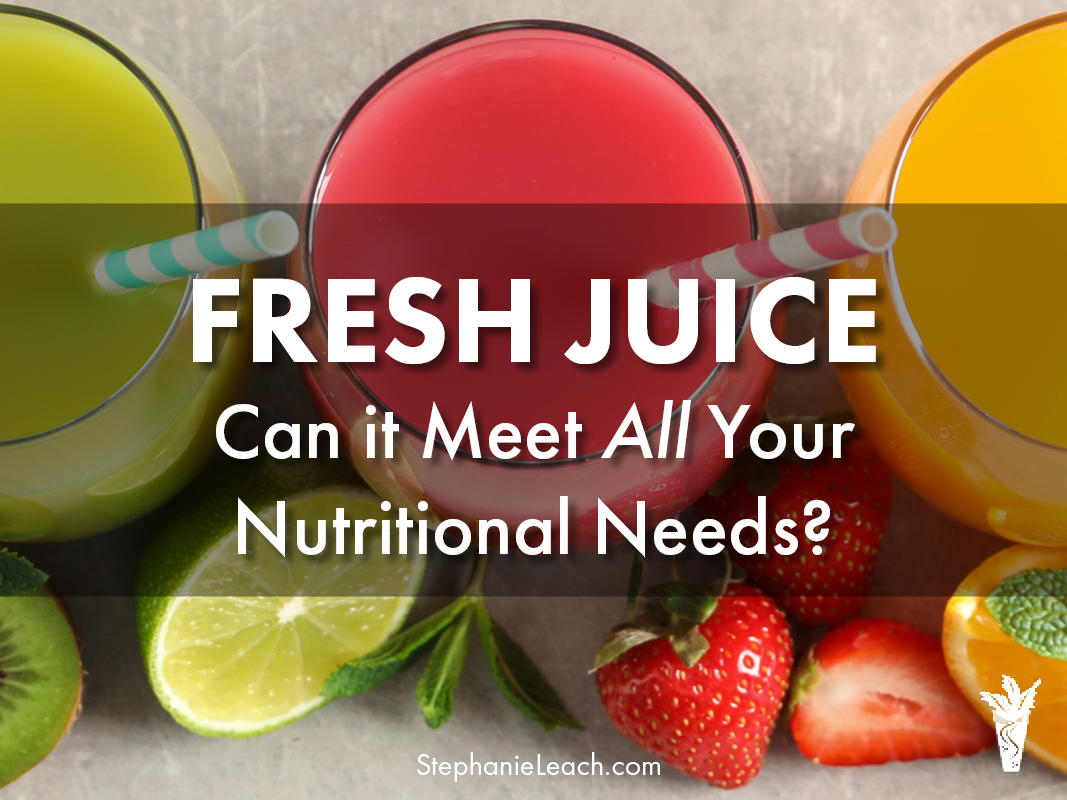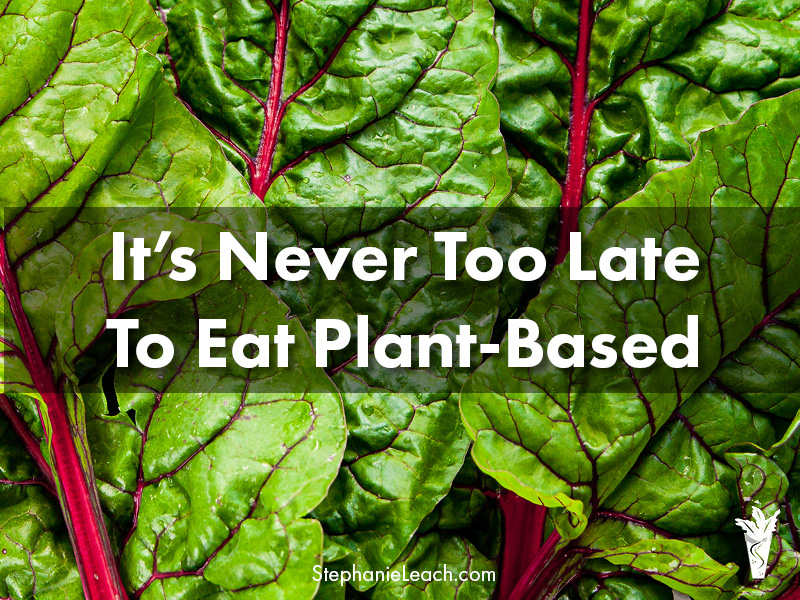If you are among the 40% of the world’s population (nearly 2 billion) that are overweight, you probably wish you were in the other 60%. And you’ve probably tried repeatedly to lose weight and keep it off. While fad diets may fail in the long run, there is one diet that is proven to lead to sustainable weight loss with improved long-term health: a low fat, whole food, plant-based diet.
But I don’t want you to take my word for it. As a Certified Health Coach and Juice Therapist, I am interested in evidence-based nutrition. So here is what the published studies reveal about a whole food plant-based diet for weight loss.
Plant-Eaters are Slimmer
Studies show that the more plant-based your diet, the lower your BMI (body mass index.) In the Adventist Health Study-2 (almost 61,000 participants ages 30+) the overall eating patterns revealed a body mass index that declines with an increase in percentage of non-animal foods.
| Dietary Pattern | BMI (kg/m2) |
| Omnivores (Meat Eaters) | 28.8 (Obesity: >30.0) |
| Lacto-Ovo Vegetarians (Egg and Dairy Eaters) | 25.7 (Overweight: 25 – 29.9) |
| Vegan (No Animal Products) | 23.6 (Healthy: 18.5 – 24.9) |
Predictable Weight Loss
In clinical trials, whole food, plant-based diets (healthy vegan diets) predictably led to weight loss – without calorie restriction.
In a 2005 study, 64 overweight post-menopausal women ate either a low-fat vegan diet without restriction, or one that restricted fat to 30% of the diet in accordance with the National Cholesterol Education Program. Who lost more weight? The women eating as much as they wanted on a low-fat healthy vegan diet lost 5.8kg over 14 weeks compared to 3.8kg in the control group. Most importantly, 2 years later those eating a healthy low-fat vegan diet had maintained more weight loss that the other group.
These results have been demonstrated repeatedly in numerous trials. In a meta-analysis of 15 clinical trials, and another analysis of 17 separate clinical trials, overall weight loss was always greater on a vegan diet.
How a Whole Food Plant-Based Diet Promotes Weight Loss
Why does a whole food, plant-based diet work better than any other diet for sustainable weight loss – without restricting calories or increasing physical activity?
 Reduced Energy Density
Reduced Energy Density
Energy density refers to the number of calories per gram of food. Plant foods are much lower in energy density than animal foods. Plant foods contain fiber which is largely calorie-free. Animal foods contain zero fiber.
Plant foods are rich in complex carbohydrates and protein at 4 calories per gram, and low in fat at 9 calories per gram.
When you are eating lots of vegetables, whole grains, and fruit, you naturally consume fewer calories without feeling hungry or deprived.
Lose More Fat When Eating Low-Fat
You may have heard that high-fat, low-carb is the way to go for weight loss. This isn’t what the studies show. In a crossover study comparing reduced-fat and reduced-carbohydrate diets, study participants lost much more fat on the low-fat diet (-89 grams of body fat per day) than when they were on the low-carb diet (-53 grams of body fat per day.) Weight loss was nearly double on a low-fat diet.
Increased After-Meal Energy Expenditure
There is something beyond reduced calories and less fat that leads to weight loss on a low-fat whole food, plant-based diet.
After you eat a meal, your body uses energy to process and/or store the food. This is called the thermic effect of food. About 10% of the calories you consume are used up in this process.
What you eat affects your after-meal energy expenditure. In one of the studies referred to earlier, energy expenditure of a test meal was 16% higher after following a low-fat vegan diet for 14 weeks!
It turns out that fat impairs the ability of the mitochondria in your cells to convert fuel into energy. High-fat diets that include meat, dairy, and eggs disrupt cellular metabolism and reduce after-meal energy expenditure. Low-fat, plant-based diets reverse this effect.
Superior to Low-Carb Diets
Most diets for weight loss restrict calories or carbohydrates, or alter macro-nutrient balance (percentage of fat, protein, carbs.) Dieting in general can lead to weight loss. But it turns out that not all weight loss is equal.
 The diet you choose for weight loss should also take into consideration other important health factors. With heart disease being the number one killer of men and women today, and cancers on the rise, how will the diet affect your cardiovascular health and cancer risk?
The diet you choose for weight loss should also take into consideration other important health factors. With heart disease being the number one killer of men and women today, and cancers on the rise, how will the diet affect your cardiovascular health and cancer risk?
Low-carb diets do lead to weight loss, but at a price. In the Nurses’ Health Study, low-carb diets were associated with a 23% higher overall mortality rate. The cardiovascular mortality rate increased by 14% and cancer mortality rate was a whopping 28% higher. (High-carb whole plant foods had a protective effect.) When researchers looked at 17 low-carb diet studies (272,000+ people,) there was a 30% increase in overall mortality.
Low-carb diets also increase the risk of type 2 diabetes by 37%.
A Healthy Vegan Diet Lowers Cholesterol
A whole food, plant-based diet is cholesterol-free and low in saturated fat. This leads to major improvements in serum cholesterol levels. Clinical trials have shown that eating a diet rich in plant-foods reduced LDL cholesterol by 29% in just 4 weeks. A low-fat vegan diet has also been shown to significantly lower triglycerides.
Lower Blood Pressure
If you have high blood pressure, you know that getting it down to the normal range is important for heart health. In a meta-analysis of 7 clinical trials, a diet rich in plant foods reduced systolic pressure by 4.8mg/dL and diastolic pressure by 2.2 mg/dL.
 Less Body Fat
Less Body Fat
If you are trying to lose weight, you are wanting to lose fat. Plant-based diets reduce body fat best. This is due to some of the factors mentioned earlier, like less fat in the diet, less energy density and increased post-meal energy expenditure.
Improved Blood Sugar Control
Healthy plant-based diets lead to improved insulin sensitivity in non-diabetic people and improved blood sugar control in individuals with type 2 diabetes. This is most likely due to reduced fat in the muscle and liver cells.
Nutritionally Complete
If you are concerned about getting enough protein or calcium on a whole food, plant-based diet, worry no more. When you eat a healthy vegan diet you are actually increasing the nutrition your body needs for operating at its best. The Academy of Nutrition and Dietetics states that vegan diets are nutritionally adequate for every stage of life, and offers reduced risk of many chronic diseases.
Where do you get your iron and calcium? Dark, leafy green vegetables, beans and lentils. Your iron intake will actually be higher than on an omnivorous diet. And your calcium needs are lower when eating plant-based, because less calcium is being leached from your bones.
Protein is found in all foods in varying amounts. If you eat a wide variety of beans, grains and vegetables, you’ll get plenty of protein.
Because plant-foods do not contain vitamin B12, a supplement is recommended.
A Whole Food Plant-Based Diet is Doable
If you are going to change the way you eat forever, (so you can live a long, healthy, disease-free life,) it had better be something you can learn to love. Food, after all, should be enjoyable! If you can’t imagine a meal without animal products, I understand. I have definitely “been there.” No one who loves burgers, pizza, BBQ, steak, eggs, etc, thinks they will ever be happy with a diet that eliminates their beloved foods.
 But what do the studies show? There is a high level of acceptance of a healthy vegan diet in clinical trials. Dieters eating a high-fiber, plant-based diet report more satiety and better energy for exercise. When you begin eating clean, plant-based proteins, whole fruit, vegetables and whole grains, your palate becomes accustomed to the flavors and textures. You lose those cravings for high-fat, high-sodium, high-sugar foods. Celery juice tastes salty. A ripe banana tastes sooo sweet!
But what do the studies show? There is a high level of acceptance of a healthy vegan diet in clinical trials. Dieters eating a high-fiber, plant-based diet report more satiety and better energy for exercise. When you begin eating clean, plant-based proteins, whole fruit, vegetables and whole grains, your palate becomes accustomed to the flavors and textures. You lose those cravings for high-fat, high-sodium, high-sugar foods. Celery juice tastes salty. A ripe banana tastes sooo sweet!
If after 30 days on a whole food, plant-based diet, you decide to hit the fast-food drive thru, you will notice the salt/sugar/fat assault on your body. It won’t even taste good anymore. Your body might even reject it.
No one wants to count calories or track macronutrients long-term. Even doing this in the short-term can be time consuming and frustrating. With a whole food, plant-based diet, you can lose weight and maintain a healthy weight without tediously counting calories or tracking points or macros. This definitely contributes to the “doable” nature of this way of eating.
How to Begin
In clinical trials, a two-step approach has proven effective. Explore plant-based meals for 1 week. Find some recipes you enjoy. Learn some new food preparation methods. Stock up on beans, whole grains, vegetables, fruit, nuts and seeds. Then go all-in for 3 weeks or more.
By going all-in on a whole food, plant-based diet, you will quickly experience the health improvements and weight loss you are looking for. It will also help your palate adjust more quickly.
Download the Whole Foods, Plant-Based Diet & Lifestyle Action Guide
Get Support for Success
 Support is an important factor for success. Enlist the help of a friend or family member on your plant-based journey. You may also be able to find a local whole food, plant-based group that meets monthly to provide information, encouragement and support. If that isn’t available, consider working with a Certified Health Coach experienced in plant-based nutrition. It can take time to make changes that stick. Studies show that individuals getting weekly or biweekly support achieve significantly more weight loss than those that go it alone.
Support is an important factor for success. Enlist the help of a friend or family member on your plant-based journey. You may also be able to find a local whole food, plant-based group that meets monthly to provide information, encouragement and support. If that isn’t available, consider working with a Certified Health Coach experienced in plant-based nutrition. It can take time to make changes that stick. Studies show that individuals getting weekly or biweekly support achieve significantly more weight loss than those that go it alone.
If you want to lose weight healthfully, and keep it off, going plant-based is proven to give you the desired results.
If you’d like to know more about how I support clients in private 1-on-1 coaching programs, book your free 30-minute phone Health Consultation with me today.
Source: The Use of Plant-Based Diets for Obesity Treatment, International Journal of Disease Reversal and Prevention










Leave A Comment